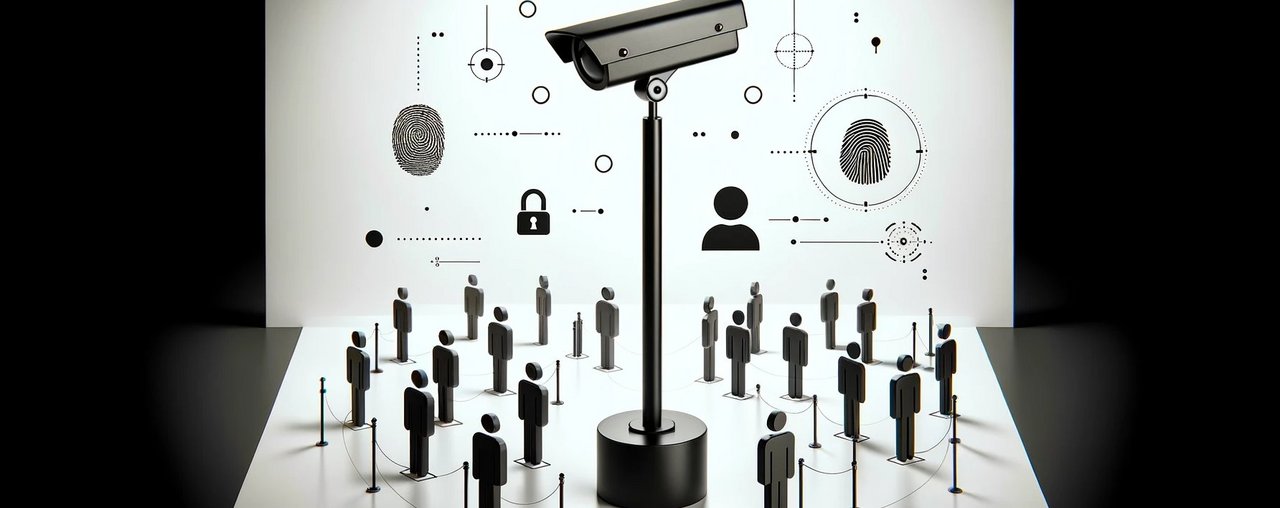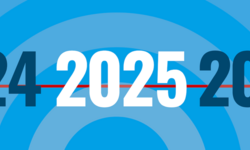
Big Brother is Watching - AI Surveillance in Public Spaces
Digitalisation leads to ground-breaking technologies, but not every innovation means progress. Especially when it comes to new surveillance tools, we need to take a very close look.
Real-time remote biometric identification systems are one example of such a dangerous development that is being promoted as security-enhancing. As complicated as it sounds, as simply it can be explained: The system uses AI to identify people – usually from a remote location (as the name suggests). This can be done by recognising a person's face, body shape or movement characteristics. This biometric data is then compared with a reference database. And all this is done without the knowledge or active involvement of the person concerned.
The use of such systems in public spaces not only increases state control over citizens, but also threatens anonymity. Biometric (real-time) surveillance is not only an attack on our privacy, but also on democracy. We'll show you what legal, ethical and technical problems the use of such systems raises.
AI Regulation: Progress or Deceptive Security?
An important regulatory framework was created in 2024 with the EU Regulation on Artificial Intelligence (AI). Although real-time remote biometric identification systems are generally prohibited because they disproportionately interfere with privacy, among other things, there are exceptions which undermine this progress. Defence against terrorism or the investigation of serious criminals could allow such systems under strict conditions. In practice, however, such exceptions are problematic and open the door to far-reaching intrusion.
A Threat to Our Fundamental Rights
Widespread biometric surveillance in public spaces poses a serious risk and violates in particular:
- Data protection: According to Section 1 of the Austrian Data Protection Act (DSG), personal data must be protected. Biometric data requires a particularly high level of protection due to its sensitivity.
- Privacy: Article 8 of the European Convention on Human Rights (ECHR) guarantees the right to privacy. Constant surveillance would effectively override this right.
The Austrian Constitutional Court has repeatedly emphasised that interference with these rights is only permissible under very strict conditions. For example, it has repeatedly ruled that the use of section control data by security authorities is disproportionate. Such technologies create a “sense of surveillance” that massively impairs key democratic rights such as the right to peaceful assembly or freedom of expression.
Real-time remote biometric identification systems pose similar risks. Even if their use is limited to particularly serious criminal offences, such measures create a climate of constant control. This is because comprehensive surveillance covers everyone – regardless of whether they are behaving suspiciously.
These risks not only affect authoritarian regimes, but also democratic states such as Austria, where careful handling of such technologies is necessary.
Austria Takes a Stance
Austria has argued in favour of stricter rules in the EU negotiations. An official position paper emphasised that exceptions undermine the protection of fundamental rights and are not compatible with the Austrian understanding of the protection of fundamental rights. This highlights the sensitivity to the risks of such technologies and the need to avoid invasive surveillance measures.
Technical Flaws, Fatal Consequences
In addition to legal and ethical issues, the use of biometric systems also poses major technical risks that can have far-reaching consequences.
In one prominent case, an innocent citizen even found himself in a Serbian prison in 2023 due to a flawed facial recognition software.
He was categorised by an AI facial recognition programme as the “boss” of a gang that purchased products with counterfeit money in supermarkets. Without evidence or incriminating statements, an international arrest warrant was issued against him. He was then arrested in Serbia and only transferred to Vienna after two months in prison, where he was proven innocent.
Numerous international reports have also emerged of similar cases in which innocent people have been incriminated by faulty facial recognition software. Such incidents highlight the weaknesses of these technologies and the far-reaching consequences for individuals.
Lack of Reliability in Biometric Systems
Such errors raise fundamental questions about the reliability and security of biometric systems. The very development of biometric systems is prone to errors due to their technical nature. They often discriminate marginalised groups, reinforce existing inequalities and are heavily dependent on external factors such as lighting conditions or data quality. The lack of transparency of the providers of such systems further adds to the problems.
Despite legal loopholes and the risk of losing our freedom, even independent tests prior to the use of biometric systems have not been adequately implemented – for more information, see our article on facial recognition.
We Must Draw the Right Conclusions – Before It's Too Late
The serious fundamental rights concerns, the inherent technical susceptibility to errors and the far-reaching consequences for those affected clearly show: These technologies are not compatible with a liberal constitutional state. We need alternatives that strengthen the protection of privacy and safeguard fundamental rights.
Clear boundaries are particularly important now that surveillance technologies are becoming increasingly present. Austria has the opportunity to set a good example and strictly reject such invasive biometric surveillance technologies. Our freedom and democracy are at stake.
Since you're here
… we have a small favour to ask. You want to keep a close eye on the government? You want to stay up-to-date on surveillance, privacy, net neutrality, and all matters related to your fundamental rights on the internet? Subscribe to our newsletter and approximately once a month, we will send you a message (in German) about everything that happens around digital policy in Austria and in Europe, about our actions, legal analyses and position papers.
Together, we defend our fundamental rights in the digital age – because civil society works! Stay informed!







